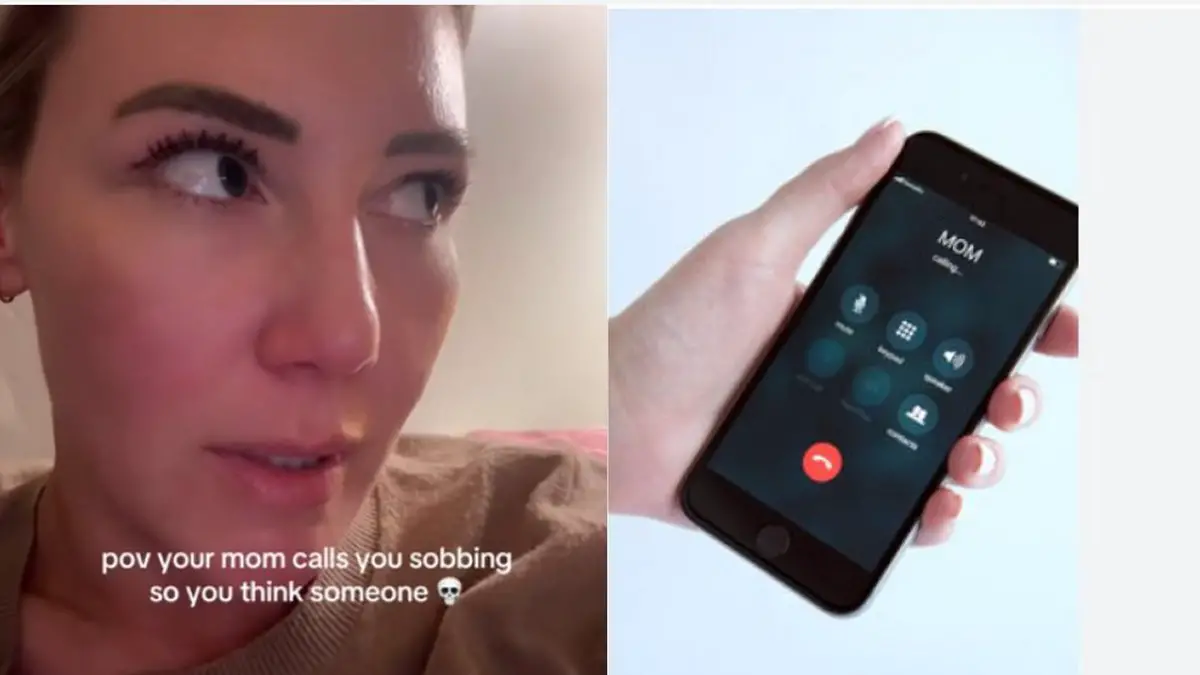A Utah woman thought she was settling into a normal workday when something deeply unsettling jolted her out of routine. It began with a phone call that looked completely harmless. One she would never think twice about answering. But within moments, it became clear she had stumbled into something far more disturbing than a simple misdial.
The Utah woman known as @bre.brief on TikTok explained that she was at work when her mom’s number suddenly lit up her screen. The moment she answered, she heard nothing but frantic sobbing from the other end. Her mind went straight to the worst possibility. Something devastating must have happened.

Image Source: @bre.brief/TikTok
Seconds later, everything shifted. The crying stopped abruptly, and a man’s voice took over. He claimed her mom had asked him to call, instantly raising her anxiety. At that point, the Utah woman still hadn’t realized she was being targeted. She thought he might be a doctor, a bystander, maybe even someone helping her mother in an emergency.
The man asked if she was alone and mentioned something vague about the police. That detail made her think there had been some kind of accident and that officers were involved. But something about it didn’t make sense. She and her mother lived in different areas. Why would local authorities from her own city be calling her about an incident that happened somewhere else?
Familiar Number Turns Into a Nightmare
Before she had time to figure it out, the truth revealed itself in the most terrifying way. The man told her not to contact the police and then delivered a threat that made her entire body drop. He claimed he would hurt her mother unless she gave him what he wanted.
At that moment, instinct took over. She hung up immediately, her mind racing. Something felt wrong, but what scared her most was that the call truly appeared to be from her mother’s number, complete with her contact photo. Seeing a familiar number used so convincingly left her shaken.
When she dialed her mother back, she finally exhaled. Her mom answered right away, completely unharmed and unaware of what had just occurred. Relief washed over her, but the fear didn’t disappear instantly. She said she spent half an hour trembling after realizing how close she had come to believing the scam.
Realization Hits Hard For Terrified Utah Woman
In the video she posted afterward, she asked viewers what they could do to prevent something like this from happening again. Many agreed the situation was terrifying, especially since the threat involved a loved one. Some encouraged reporting it, while others pointed out that this type of scam has become so widespread that authorities often can’t do much.
Commenters were quick to share how distressing the Utah woman’s ordeal sounded. Several noted how convincing these tactics can be for people who don’t know that caller ID can be manipulated. Others expressed frustration that scammers resort to psychological terror rather than making an honest living.
Protecting Your Family
Several viewers stepped in with practical advice. Many suggested creating a family code word. A simple way to confirm if a call is genuine during a crisis. Others revealed that their families already use one for moments exactly like this.
Another commenter, familiar with phone systems, explained that this technique is called caller ID spoofing and sadly happens frequently. Several people shared that similar fake emergency calls had been tried on them, and most said law enforcement often can’t intervene because the scammers route calls through systems that hide their tracks.
“All families need a safe word, I already have one with my mom,” suggests one follower.
“Alright, it’s time to make a family code word. Thank you for sharing!” another adds.
This Utah woman’s frightening experience highlights how believable modern scams have become. With technology allowing criminals to mimic trusted numbers, anyone can be caught off guard, even during an ordinary workday. Her story serves as a critical warning: if something feels off, pause, verify, and protect yourself. Scammers are getting smarter, and staying alert may be the only way to stay safe.

